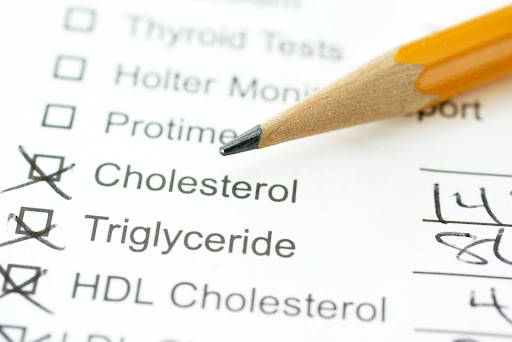Blog
What causes high cholesterol?

For this reason, understanding why high cholesterol is dangerous and what the major causes of this condition are is an essential part of looking after your health, particularly as you get older. While many causes of this chronic condition are brought on by certain treatable/avoidable lifestyle factors such as fatty diets, a lack of exercise and/or smoking, there are also a number of other causes of high cholesterol that everyone should be aware of. In this blog we will take a look at these major causes before also looking at some of the treatment options used to fight high cholesterol.
What foods cause high cholesterol?
Unbalanced diets are the primary cause of high cholesterol. This is because cholesterol enters our body through the foods that we eat. Although it’s true that some cholesterol in your diet is fine, and can even be healthy, diets that are overly high in saturated fat can lead to blocked arteries and heart disease. With this in mind, doctors and other healthcare professionals will generally advise limiting (or in some cases avoiding) certain types of food. These include:
- Red meat and processed meats
Fatty cuts of steak, roast beef, ribs and ground beef typically have a high level of saturated fat and cholesterol content. This means eating red meat on a regular basis can raise your blood cholesterol and increase your risk of heart disease. With this in mind, it’s advisable to choose lean ground mince and other cuts of meat, such as sirloin and fillet steak rather than fatty cuts, and pork loin or tenderloin rather than bacon. It is also a good idea to try lower-fat sources of meat, for example lean ground poultry rather than minced beef and chicken or turkey sausages rather than pork sausages.
- Full-fat dairy
Dairy products such as whole milk, butter, cheese and full-fat yoghurt are high in saturated fat, meaning they also contribute to high cholesterol levels. Therefore it is recommended that you limit the amount of butter and cheese you consume, cook with olive oil rather than butter, and choose to drink semi or fully-skimmed milk. Low fat cheeses and yoghurts are also readily available.
- Fried foods
Items of food cooked in a deep fat fryer, including the likes of french fries, fried chicken, battered fish and doughnuts, should be limited. This is because these foods contain a high amount of saturated fat and cholesterol taken from the oils they are fried in. Baked items or foods cooked in a low-fat air fryer are healthier alternatives to traditional deep fried food.
- Confectionery
Sweet treats such as biscuits, cakes and doughnuts are typically made with butter, making them high in saturated fat and cholesterol. We would recommend limiting your intake of these items and trying to replace these foods with low-fat sweet items such as fruit. Alternatively, you can make your own confectionary items using low-fat and reduced sugar recipes.
Can alcohol cause high cholesterol?
To put it simply, yes – drinking too much alcohol can increase your cholesterol level. The consumption of alcohol alone will probably not cause you to have high cholesterol levels, however if your levels are already high due to genetics or poor diet, for example, excessive alcohol consumption can add to these levels, increasing your risk of heart disease and other high cholesterol-related conditions.
Does smoking cause high cholesterol?
Although smoking does not directly increase the cholesterol in your body, it does make the low-density lipoprotein (LDL) cholesterol (bad cholesterol) stickier. This means it can more easily cling to the walls of your arteries, causing build ups and clogs that can lead to heart attacks. On top of this, smoking also lowers the levels of high-density lipoprotein (HDL )cholesterol (good cholesterol) in your body. This is bad as HDL helps your body naturally break down LDL in your arteries, helping to keep levels balanced.
Can stress cause high cholesterol?
Although the connection between stress levels and high cholesterol are not quite as clear cut as the link between diet and cholesterol, research has shown stress and anxiety can certainly play a role. Chronic stress and anxiety can cause lipid concentrations in the body to increase. Over a period of time, this can lead to build-ups of LDL cholesterol forming in arteries, restricting blood flow and increasing your risk of heart disease and strokes.
Through triggering your body’s ‘fight or flight’ response, stress also stimulates the production of both cortisol and adrenaline. These hormones cause your body to release free-floating fatty acids and triglycerides into your bloodstream, which can in turn cause levels of LDL cholesterol to rise.
Is high cholesterol hereditary?
If close members of your family live with high levels of cholesterol, you are more likely to have it yourself. This is because you may have inherited certain defective genes linked to the control of cholesterol in the body. This condition is known as familial hypercholesterolemia.
Although having a genetic risk for high cholesterol doesn’t guarantee that you’ll have high cholesterol, the only way to know is through talking to your GP and getting tested. If you do have familial hypercholesterolemia, you may struggle to manage the levels of cholesterol in your body with lifestyle changes alone and instead may require medication to reduce your risk of clogged arteries.
How to treat high cholesterol
As well as the lifestyle changes touched upon above, there are also a range of medications that can be used to treat high cholesterol. These include statins, cholesterol absorption inhibitors and bile acid sequestrants.
Here at Access Doctor, we offer a range of prescription cholesterol-lowering medications. Simply get in touch today and after a short consultation with one of our in-house doctors, we can recommend the best treatment to suit your needs. We will even send your purchase directly to your home, confidentially and discreetly.
